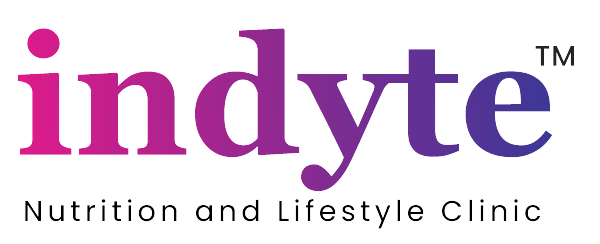- August 23, 2024
- PRIYANKA MAHESHWARI
- Comment: 0
- PCOS & PCOD
If you have been experiencing an irregular menstrual cycle and you are afraid of a health condition that seems to impact every aspect of your life? You’re not alone.
It can be challenging to determine whether an irregular cycle is normal or if an underlying issue needs to be addressed promptly.
With the developed misconceptions creating buzz regarding the problems associated with the menstrual cycle, most women ignore it, mainly if we talk about PCOS.
Polycystic Ovary Syndrome (PCOS) is a prevalent yet often misunderstood disorder that affects millions of women worldwide.
It’s more than just an occasional irregular period or acne—it’s a complex condition with a range of challenging symptoms and causes. That is why women must address this issue attentively.
If you are experiencing PCOS-related issues and know how to control them effectively, you’re in the right place.
In this blog, we will explore the causes of PCOS and discover the most effective ways to manage it.
Definition and Prevalence of PCOS
Polycystic Ovary Syndrome (PCOS) is more than a buzzword; it’s a natural, challenging condition that affects about 8–13% of women of reproductive age.
PCOS is characterized by irregular menstrual cycles, elevated levels of male hormones (androgens), and polycystic ovaries.
But why is it so common nowadays, and why should we care? Understanding PCOS is crucial not only for those who are dealing with it but for anyone who wants to stay informed about its causes, occurrence, and cure.
Let’s understand the underlying causes and how they contribute to this perplexing syndrome.
Understanding the Causes of PCOS
Understanding the causes of PCOS is crucial for effective management and treatment.
By identifying the complications of this disorder, you can take specific actions to minimize symptoms and improve your reproductive health.
Genetic Factors
Could your family history be the key to unlocking the mystery of PCOS?
The genetic component of PCOS suggests that if your mother or sister has PCOS, you are more likely to develop it as well.
According to research, about 24% of women diagnosed with PCOS have a mother who also has the condition, while 32% have a sister affected by it.
While researchers are still unraveling the exact genetic mechanisms, it’s clear that inherited factors contribute significantly to the cause of PCOS. This means that for some, PCOS may be more of a genetic puzzle than a lifestyle choice.
Hormonal Imbalance
Have you ever wondered why your hormones are on a rollercoaster ride? In PCOS, hormonal imbalance is a central issue. Women with PCOS often have higher levels of androgens, which are male hormones like testosterone.
This hormonal disruption can lead to symptoms such as excess hair growth, acne, and irregular periods. Insulin resistance often accompanies these hormonal imbalances, creating a vicious cycle.
Lifestyle and Environmental Factors
Lifestyle and environmental factors play a critical role. If you dwell on unhealthy habits in your daily lifestyle, it can negatively fuel your PCOS symptoms.
A diet high in processed foods and low in nutrients can contribute to insulin resistance and weight gain, both of which are associated with PCOS.
Lack of exercise worsens these issues, while exposure to environmental pollutants further interferes with hormonal balance. These areas could make a significant difference and address the underlying causes.
Metabolic and Insulin Factors
Many women with PCOS experience insulin resistance, where the body’s cells don’t respond effectively to insulin. This leads to higher insulin levels, which can stimulate the ovaries to produce more androgens, exacerbating PCOS symptoms.
Addressing insulin resistance is crucial in managing PCOS and improving overall metabolic health. Understanding how to control PCOS involves tackling these metabolic issues efficiently.
Symptoms and Diagnosis
Comprehending the symptoms of PCOS is crucial for identifying the condition in early stages and seeking appropriate treatment.
Common Symptoms
So, how can you identify if you have PCOS? The symptoms can vary but commonly include:
- Irregular menstrual cycles or absence of periods
- Excessive hair growth (hirsutism)
- Acne and oily skin
- Weight gain or difficulty losing weight
- Thinning hair or hair loss on the scalp
- Dark patches of skin, particularly in areas like the neck and underarms
Diagnostic Criteria and Methods
Remember not to confuse PCOS with PCOD, as understanding the difference between PCOS and PCOD is crucial since they aren’t the same.
Analyze your symptoms, and a further diagnosis will clear up any doubts.
Let’s discuss what steps are involved in diagnosing PCOS.
Diagnosing PCOS can be challenging due to its varied symptoms. The Rotterdam criteria, widely used by healthcare providers, require at least two of the following three features for a diagnosis:
- Irregular or absent menstrual cycles
- Clinical or biochemical signs of hyperandrogenism (excess androgens)
- Polycystic ovaries visible on ultrasound
Blood tests are often conducted to measure hormone levels, and an ultrasound may be performed to visualize the ovaries.
Early diagnosis is essential for managing symptoms and preventing long-term complications.
Recognizing the cause of PCOS and knowing about how to control PCOS can make a significant difference in your treatment outcomes.
Effective Control Methods for PCOS
Managing PCOS effectively involves a multifaceted approach that combines medical treatments, lifestyle adjustments, and alternative therapies.
Let’s look into different methods you can adopt for controlling PCOS:
Lifestyle Modifications
The question arises of whether changing your lifestyle improves your PCOS symptoms. Absolutely yes. Here’s how:
- Balanced diet: Your dietary approach is a powerful tool for managing PCOS. Focus on whole, nutrient-rich foods and reduce intake of processed and sugary foods. A diet rich in lean proteins, healthy fats, and fibre can help manage insulin levels and reduce symptoms.
Dietician Priyanka from Indyte emphasizes the importance of a balanced diet tailored to individual needs.
- Regular exercise: Incorporate at least 150 minutes of moderate exercise per week. Walking, swimming, and strength training can improve insulin sensitivity and aid in weight management.
- Stress management: Techniques such as yoga, meditation, and deep breathing can help reduce stress and its impact on hormonal balance.
Making lifestyle changes is one of the most effective ways to control PCOS and address its underlying causes.
Natural and Alternative Therapies
If you want to diagnose it naturally, you should know if there are natural ways to manage PCOS. Many women find relief through alternative therapies that you can try, too:
- Supplements: Inositol, omega-3 fatty acids, and vitamin D have shown benefits in improving insulin sensitivity and reducing symptoms.
- Herbal remedies: Spearmint tea, for example, has been suggested to help lower androgen levels.
- Acupuncture: This may help in regulating menstrual cycles and reducing stress.
- Mind-body practices: Yoga and meditation can enhance well-being and help manage symptoms.
Exploring natural and alternative therapies offers an additional approach to how to control PCOS and improve overall health.
Long-term Management and Support
Regardless of following the most effective approach to dealing with PCOS, you must ensure that you manage it in the long run.
How can you ensure long-term success in managing PCOS? A comprehensive approach is vital:
- Regular monitoring: Keep up with routine check-ups to track symptoms and adjust treatments as needed.
- Managing associated conditions: Address related health issues such as diabetes and cardiovascular risk.
- Psychological support: The emotional impact of PCOS can be significant. Seeking support through counseling or support groups can help manage the psychological aspects.
Professional dietician Priyanka from Indyte helps you integrate mental health support into your care plan.
- Personalized health plan: Collaborate with healthcare providers to create a tailored plan with realistic goals and sustainable practices.
Effective long-term management of PCOS involves a combination of medical treatments, lifestyle changes, and psychological support. Understanding how to control PCOS holistically can lead to better health outcomes.
Conclusion
Navigating the complexities of PCOS requires a multifaceted approach. Understanding the genetic, hormonal, lifestyle, and metabolic factors involved can empower you to take control of your health.
It’s time to take charge and work with your healthcare provider to find a plan that works for you. Remember, you’re not alone in this journey— regular support and solutions from industry experts at Indyte are available.
From medical treatments and lifestyle changes to natural remedies and long-term health management strategies, numerous ways exist to manage PCOS and improve your quality of life effectively.

